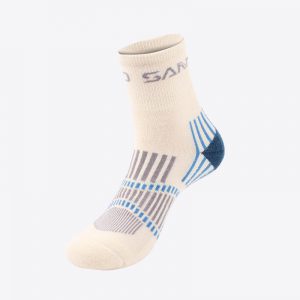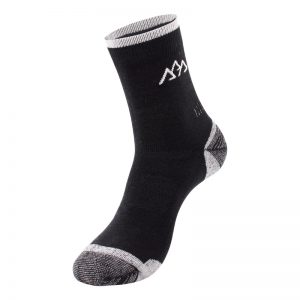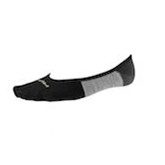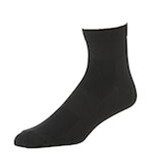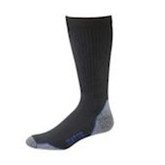The choice between wool socks and cotton socks largely depends on your specific needs and preferences. Let’s compare wool socks and cotton socks across various factors to help you make an informed decision:
- Insulation and Warmth:
- Wool: Wool socks are superior in terms of insulation and warmth. The natural crimp in wool fibers traps air, providing excellent insulation, making them ideal for cold weather.
- Cotton: Cotton socks, while breathable, do not offer the same level of insulation as wool. They are better suited for milder temperatures or during warmer seasons.
- Moisture Wicking:
- Wool: Wool socks excel in moisture-wicking capabilities. They can effectively pull moisture away from your skin, keeping your feet dry and reducing the risk of blisters and discomfort.
- Cotton: Cotton socks tend to retain moisture, which can lead to damp and uncomfortable feet, especially during activities that cause sweating.
- Breathability:
- Wool: Despite its moisture-wicking properties, wool remains breathable, allowing air to circulate around your feet, providing comfort in various conditions.
- Cotton: Cotton socks are breathable as well, but they may not be as effective as wool in regulating temperature and moisture.
- Odor Resistance:
- Wool: Wool has natural antimicrobial properties that make it resistant to bacteria and odor buildup, keeping your socks fresher for longer.
- Cotton: Cotton socks are more prone to odor retention, especially when exposed to sweat and bacteria.
- Softness and Comfort:
- Wool: Wool socks are soft and provide a comfortable, cozy feeling against the skin.
- Cotton: Cotton socks are also soft, but they may not be as plush as wool socks.
- Durability:
- Wool: Wool socks are generally more durable than cotton socks and can withstand frequent washing and wearing without losing their shape or performance.
- Cotton: Cotton socks are durable but may wear out more quickly, especially with heavy use and washing.
- Allergies and Sensitivities:
- Wool: While some people may be sensitive to wool, merino wool, commonly used in socks, is usually hypoallergenic and less likely to cause irritation.
- Cotton: Cotton is generally hypoallergenic and suitable for individuals with sensitive skin.
- Versatility:
- Wool: Wool socks are versatile and can be worn in various weather conditions due to their temperature-regulating properties.
- Cotton: Cotton socks are best suited for warm weather and everyday wear.
In summary, wool socks are an excellent choice for colder climates and activities where moisture-wicking and warmth are essential. They are ideal for hiking, outdoor adventures, and winter sports. On the other hand, cotton socks are more suitable for everyday use and warmer temperatures.
Ultimately, the best choice depends on your needs and the specific activities you plan to engage in. Many people opt to have both wool and cotton socks in their wardrobe to accommodate different situations and weather conditions.
